The Intelligent Remote sensing and geospatial Information Science (IRIS) lab, led by Professor Jungho Im in the Department of Urban and Environmental Engineering at UNIST has announced that eight of its researchers, including himself have been honored for scientific achievements and contributions at academic conferences both at home and abroad.
■ Monitoring Air Quality with AI … KOSAE 2022 Annual Conference Award Winners
Four researchers from IRIS lab have recently been honored at the 65th Annual Academic Conference of Korean Society for Atmospheric Environment (KOSAE), which took place in Songdo Convensia from October 26 to 28, 2022. The award recipients are EunJin Kang (Excellence Award), HyunYoung Choi (Participation Award), YeJin Kim (Participation Award), and SangHyeon Song (Participation Award).
EunJin Kang was given the Excellence Award for suggesting a novel method to calculate the aerosol optical depth (AOD) in East Asia by applying artificial intelligence (AI) to Polar Orbit Satellite Data. Through this, she analyzed the influence between variables that could not be explained in existing AI techniques using explainable AI techniques.
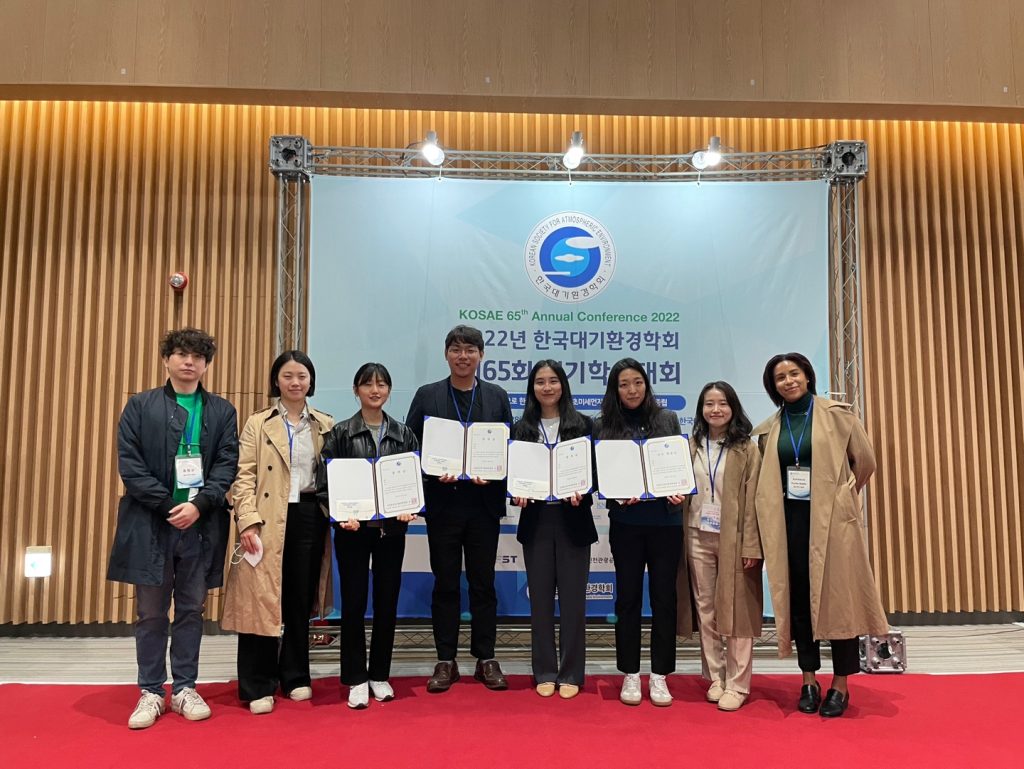
KOSAE 2022 Annual Conference Award Recipients l Image Credit: IRIS
HyunYoung Choi was given the Participation Award for proposing a novel method to estimate the ultra-fine dust (PM 2.5) concentration, using machine learning and top of atmosphere (TOA) reflectance. YeJin Kim also won the Participation Award for successfully measuring the concentrations of ground-level ozone with improved accuracy, using numerical weather prediction data, as well as an ensemble machine learning technique.
SangHyeon Song was given the Participation Award for demonstrating the estimation of spatially continuous daytime and nighttime particulate matter concentrations, using GK-2A satellite data and machine learning over East Asia.
■ Winners of the 2022 KAGIS & IAG’i Best Paper Awards Announced!
The 2022 Korean Association of Geographic Information Studies (KAGIS) Annual Fall Meeting successfully held, jointly with the IAG’i International Symposium from November 3 to 5, 2022.
At the conference, which took place in the Ara Convention Hall of Jeju National University (JNU), the following three students from IRIS lab were given the Best Paper Awards: SiWoo Lee (2022 KAGIS Best Paper Award), SangHyeon Song (2022 KAGIS Best Paper Award), and Audrieauna Beatty (2022 IAG’i Best Paper Award).
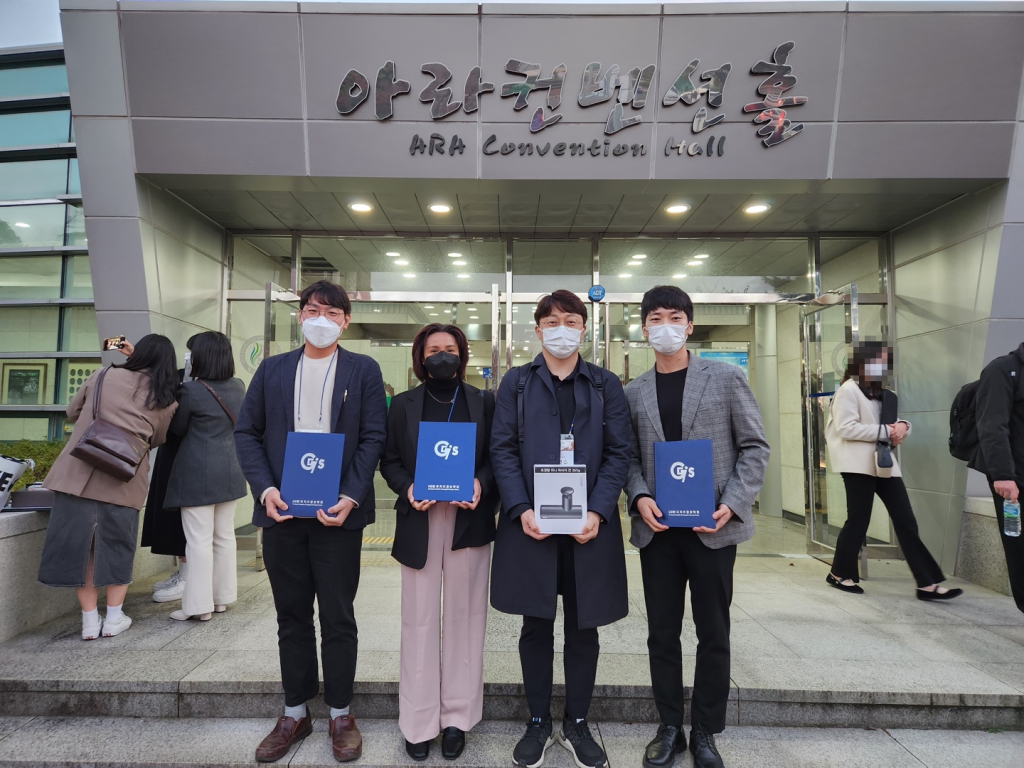
Winners of the 2022 KAGIS & IAG’i Best Paper Awards. l Image Credit: IRIS
SiWoo Lee was given the 2022 KAGIS Best Paper Award for proposing an AI-powered urban thermal environment analysis technique based on land-cover change. SangHyeon Song was also given the 2022 KAGIS Best Paper Award for proposing a method for deriving aerosol optical depth (AOD) from geostationary satellite data, using the LightGBM model.
Audrieauna Beatty won the 2022 IAG’i Best Paper Award for presenting machine learning-based prediction approach in AOD levels analysis, using the GEMS satellite observations.
■ Professor Lim Wins 2022 KSRS Best Paper Award & JuHyun Lee Wins 2022 Best Paper Presentation Award from GeoAI Data Society!
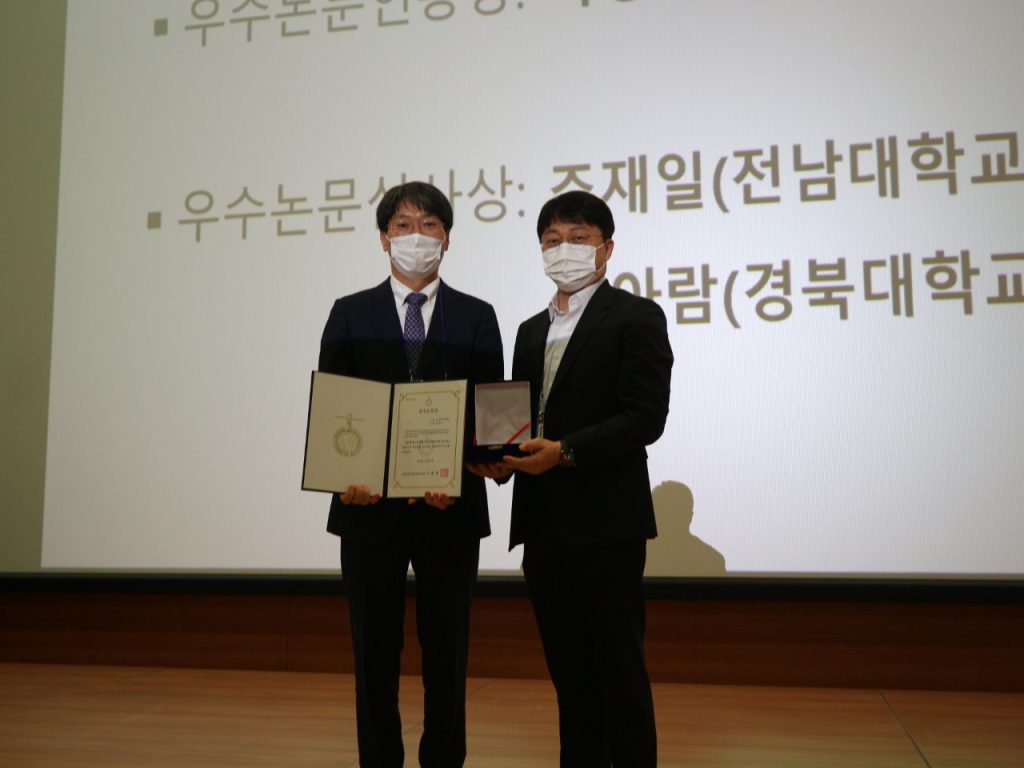
Professor Jungho Im (Department of Urban and Environmental Engineering, UNIST) has been awarded with the Best Paper Award at the 2022 Annual Fall Meeting of Korean Society of Remote Sensing. l Image Credit: IRIS
Professor Jungho Im (Department of Urban and Environmental Engineering, UNIST) has been awarded with the Best Paper Award at the 2022 Annual Fall Meeting of Korean Society of Remote Sensing (KSRS), which took place in Busan from November 7 to 9, 2022.
This award is given to Professor Im in recognition of academic achievements from previous studies about the status and prospects for drought forecasting based on satellite data. This has been published in the August 2022 issue of Korean Journal of Remote Sensing (Vol. 37, Issue 4).
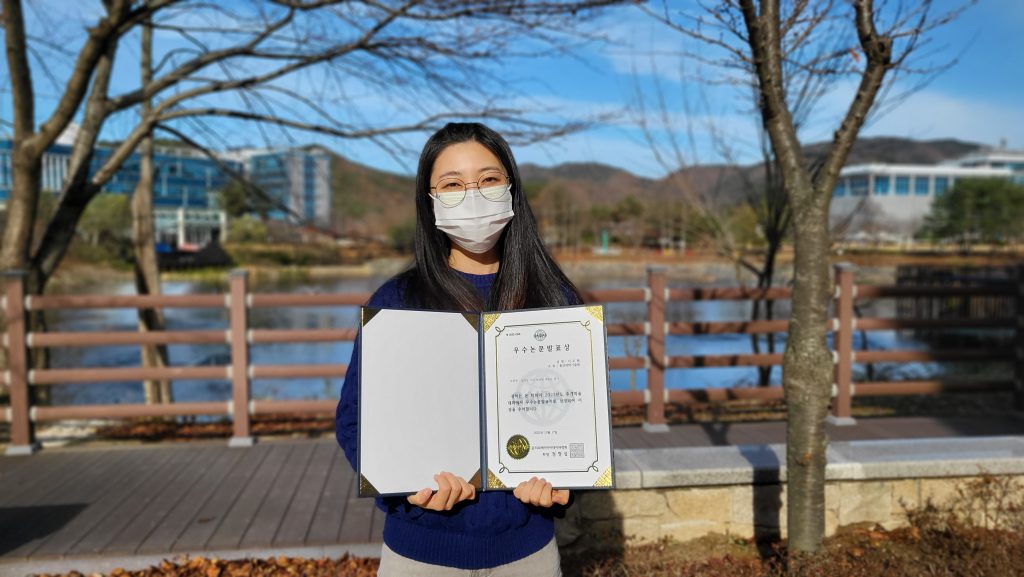
JuHyun Lee Wins 2022 Best Presentation Award from GeoAI Data Society. l Image Credit: IRIS
JuHyun Lee (Department of Urban and Environmental Engineering, UNIST) has won the Best Paper Presentation Award from the 2022 Annual Conference of GeoAI Data Society, held in Jeju Island from November 15 to 18, 2022.
This award has been bestowed to her for demonstrating outstanding presentation under the theme of “Deep learning-based Monitoring of Overshooting Tops (OTs)” at the conference.
Meanwhile, the IRIS lab utilizes remote sensing, GIS modeling, and AI techniques to broaden and deepen their understanding of the Earth sciences under climate variability/change, and leverages this knowledge to better monitor and predict natural hazards in the environment. Detailed information about the IRIS lab can be found as follows: IRIS Homepage (iris.unist.ac.kr), IRIS Instagram (@iris.unist), IRIS Facebook (@UNIST.IRIS), and IRIS Twitter (@IRIS_UNIST).


![[Short News] Recent Awards and Achievements at UNIST](https://news.unist.ac.kr/wp-content/uploads/2022/12/Professor-Im_mian-800x450-800x450.jpg)









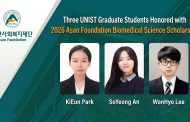
![[2026 UNIST Matriculation] “Design Questions the World Has Never Seen!”](https://news.unist.ac.kr/wp-content/uploads/2026/02/사진-박종래-UNIST-총장이-2026년-입학식사를-전하고-있다-1-1-190x122.jpg)
![[2026 UNIST Commencement] “Become Way Makers Who Open Paths Where None Are Drawn!”](https://news.unist.ac.kr/wp-content/uploads/2026/02/사진-박종래-총장이-UNIST-학위수여식사를-전하고-있다-3-1-190x122.jpg)


